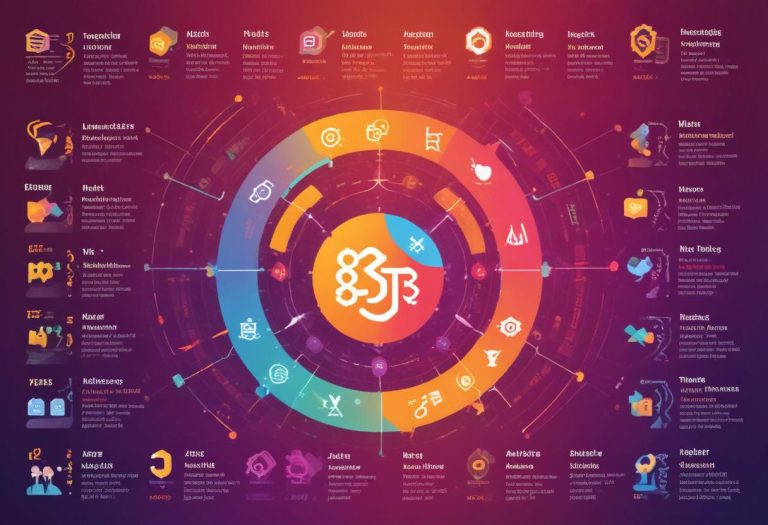The future of virtual assistance looks bright, as the demand for remote work, digital services, and cost-effective solutions continues to rise. The virtual assistant (VA) industry is constantly evolving, with new trends emerging that shape the way VAs operate and serve their clients. Here are the key trends to watch in the future of virtual assistance:
1. Increased Specialization
- Niche Expertise: As the VA market matures, businesses will increasingly seek specialized VAs with expertise in specific areas like social media management, e-commerce support, content creation, or technical assistance. VAs who specialize in a specific niche can command higher rates and attract more targeted clients.
- Micro-Niches: Beyond broad categories, VAs will be expected to focus on micro-niches. For example, you could specialize in helping e-commerce businesses on a specific platform (e.g., Shopify or Etsy) or focus on specific industries, such as health and wellness or legal firms.
2. Automation and AI Integration
- AI-Powered Tools: With the rise of automation and artificial intelligence (AI), virtual assistants will increasingly use AI tools to streamline repetitive tasks like scheduling, email management, and data entry. Chatbots, task automation software, and AI-based analytics tools will become a core part of the VA’s toolkit.
- AI-Assisted VA Services: Rather than replacing VAs, AI tools will augment their capabilities. VAs can use AI to manage tasks more efficiently, such as content generation, social media scheduling, or data analysis, freeing up time for more strategic work.
3. Increased Demand for Remote Teams
- Virtual Teams: Many businesses, especially startups, will rely on remote teams consisting of specialized VAs. Instead of hiring a single VA, companies might employ a team of VAs to cover various functions (e.g., one for social media, one for administrative tasks, and one for project management).
- Collaborative Tools: The use of tools like Slack, Trello, Asana, and Zoom will increase, allowing VAs to work seamlessly as part of larger, distributed teams.
4. Focus on Personalization and Client Relationships
- Tailored Solutions: Clients are increasingly looking for personalized services. VAs who can tailor their approach to meet the unique needs of each client will be highly sought after. This includes offering customized workflows, solutions, and communication strategies that align with each client’s goals and objectives.
- Stronger Client Relationships: VAs will need to build strong, long-term relationships with clients by providing high-value support, anticipating needs, and delivering personalized experiences. Being more involved in strategic planning and decision-making will be a key differentiator for VAs.
5. Integration of Virtual Assistants in More Business Functions
- Broadening Service Offerings: VAs will expand their roles beyond traditional administrative tasks and take on more strategic functions. This could include areas like digital marketing, content strategy, sales support, HR, project management, and product development.
- Supporting Entrepreneurs and Coaches: The rise of online coaching, consulting, and entrepreneurship will lead to an increase in demand for VAs who specialize in these industries, helping with everything from client management to sales funnel creation.
6. Increased Focus on Cybersecurity and Data Privacy
- Data Protection: As businesses rely more on remote workers, the importance of cybersecurity and data privacy will grow. Virtual assistants will need to be vigilant about handling sensitive client data and comply with regulations such as GDPR and CCPA. Offering secure, trustworthy services will become essential for staying competitive.
- Training and Certification: VAs will likely need more formal training or certifications in cybersecurity and data privacy practices to ensure they can handle sensitive information securely.
7. Subscription-Based and Retainer Models
- Ongoing Services: Many VAs will move toward offering subscription-based or retainer models where clients pay a fixed monthly fee for a set number of hours or services. This provides more consistent income for the VA and more predictable costs for the client.
- Monthly Packages: These could include a bundle of services, such as social media management, administrative tasks, email filtering, and scheduling. The trend of long-term contracts will increase as clients seek reliability and ongoing support.
8. Growth of Voice and Virtual Assistants
- Voice-Activated Technology: As voice assistants like Amazon Alexa, Google Assistant, and Siri become more advanced, VAs may need to become proficient in integrating voice search and voice-controlled systems into their workflows. Clients may seek VAs who can support voice-based platforms and use them to increase efficiency in communication and daily operations.
- Virtual Assistants for IoT: With the rise of the Internet of Things (IoT), virtual assistants will play a role in managing interconnected devices, helping clients with tasks related to smart homes or businesses with IoT systems.
9. Globalization of the VA Industry
- International Clients: With the continued rise of remote work and global connectivity, VAs will increasingly work with clients from all over the world. This will open up new opportunities in markets outside of the traditional English-speaking countries.
- Cultural Sensitivity: As VAs serve clients from different countries, there will be a growing need for cultural sensitivity and understanding. VAs will need to adjust their communication style and workflows based on cultural preferences and business practices.
10. Emphasis on Soft Skills
- Emotional Intelligence: While technical skills are essential, soft skills like empathy, communication, and emotional intelligence will become increasingly important in virtual assistant roles. Clients will value VAs who are good at managing relationships, understanding client needs, and being proactive in anticipating tasks.
- Problem-Solving: VAs will need to be more than just task managers; they will be expected to provide creative problem-solving and offer innovative solutions to help clients improve their processes and overcome challenges.
11. Rise of Virtual Assistants for Niche Industries
- Healthcare and Medical: Virtual assistants specializing in healthcare-related tasks, such as managing patient appointments, processing medical records, and supporting telemedicine practices, will become more in demand.
- Legal and Finance: Specialized VAs supporting lawyers, accountants, and financial advisors will rise, providing tasks like document management, client communication, and administrative support.
12. Virtual Assistants as Business Partners
- Strategic Support: Instead of being seen purely as administrative assistants, more clients will view VAs as strategic business partners who contribute to the growth and success of their businesses. VAs may take on roles like consulting, business development, or project leadership.
- Coaching and Mentorship: Some VAs will transition into coaching or mentorship roles, helping other VAs or business owners learn how to streamline operations, build teams, and increase productivity.






